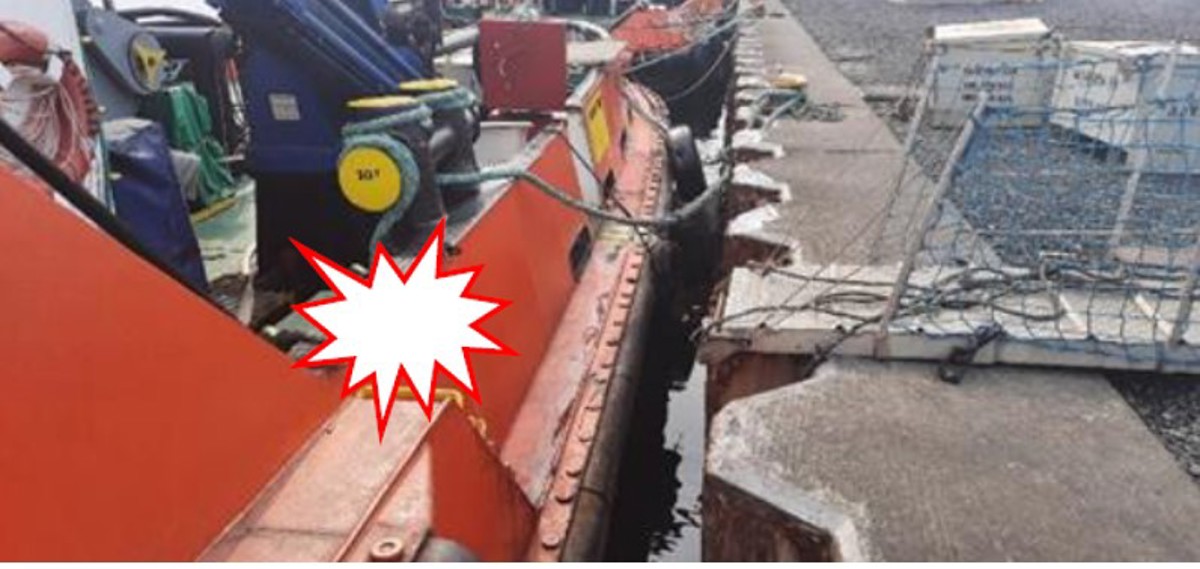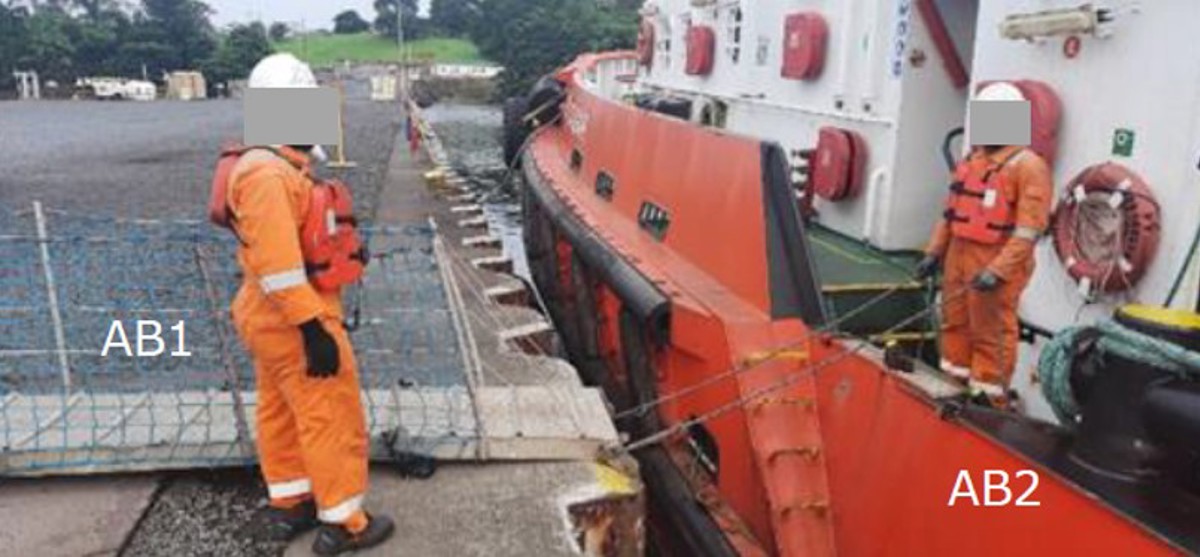MOB: Person fell into water during gangway installation
- Safety Flash
- Published on 19 November 2021
- Generated on 5 July 2025
- IMCA SF 31/21
- 2 minute read
Jump to:
Deck crew were installing a portable gangway when a crew person fell into the water.
What happened?
The person was wearing full PPE and a life jacket and was recovered without injury.
What went wrong?
One crew person (AB1) went ashore to pass the gangway ropes to a second person (AB2) on the vessel. AB2 began to pull the ropes without informing AB1, and as a result AB1’s foot became trapped under the gangway.
AB1 could not pick up the gangway from the midway position to release his foot because the only item for lifting in this position was the net and rope which runs through the stanchions. So he asked AB2, on the vessel, to pick up the gangway from the vessel to release his foot.
AB2 attempted to lift the gangway (see photo) but was unable to heave it high enough to release the trapped foot. He then stepped aside with the gangway and at that moment he lost his footing and slipped and fell into the water.

Area where crew member fell Into water

Position of ABs during installation
IMCA notes that this was a very simple and wholly avoidable incident with causes that remain “evergreen” or of permanent interest to Members.
- The crew did not inform to the Bridge and Captain that they were conducting the gangway activity.
- The crew were tired and in a rush to complete the job; they took no Toolbox Talk nor “Take 5” moment before the job.
- There were not enough people to do the job safely.
- The AB that fell overboard ought have kept three points of contact while working in the narrow bulwark.
- No-one stopped the job – Stop Work Authority was not exercised when the task could not be completed safely.
- There was no risk assessment for installing the gangway.
Actions
- Use Toolbox Talks, even for the most ordinary or everyday operation.
- Ensure better communication between bridge and deck at all times, not just when installing gangways.
- Check onboard arrangements for manual handling of gangways, including development of Risk Assessment.
- Ensure sufficient supervised and properly rested crew are available for the job.
Related Safety Flashes
-
IMCA SF 28/21
15 October 2021
-
-
IMCA SF 33/20
6 December 2020
-
-
IMCA SF 21/20
13 July 2020
-
IMCA Safety Flashes summarise key safety matters and incidents, allowing lessons to be more easily learnt for the benefit of the entire offshore industry.
The effectiveness of the IMCA Safety Flash system depends on the industry sharing information and so avoiding repeat incidents. Incidents are classified according to IOGP's Life Saving Rules.
All information is anonymised or sanitised, as appropriate, and warnings for graphic content included where possible.
IMCA makes every effort to ensure both the accuracy and reliability of the information shared, but is not be liable for any guidance and/or recommendation and/or statement herein contained.
The information contained in this document does not fulfil or replace any individual's or Member's legal, regulatory or other duties or obligations in respect of their operations. Individuals and Members remain solely responsible for the safe, lawful and proper conduct of their operations.
Share your safety incidents with IMCA online. Sign-up to receive Safety Flashes straight to your email.